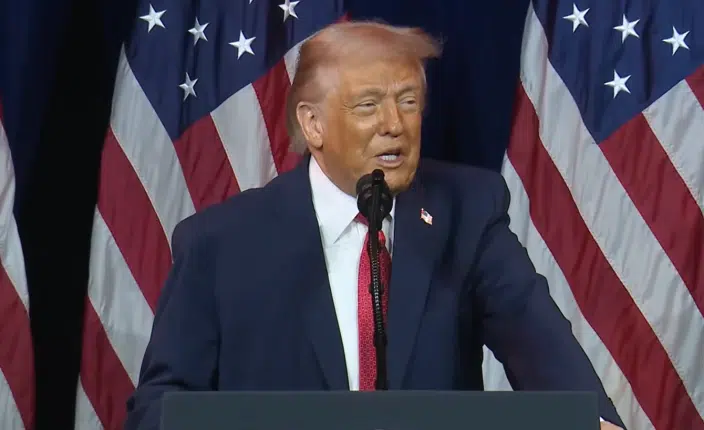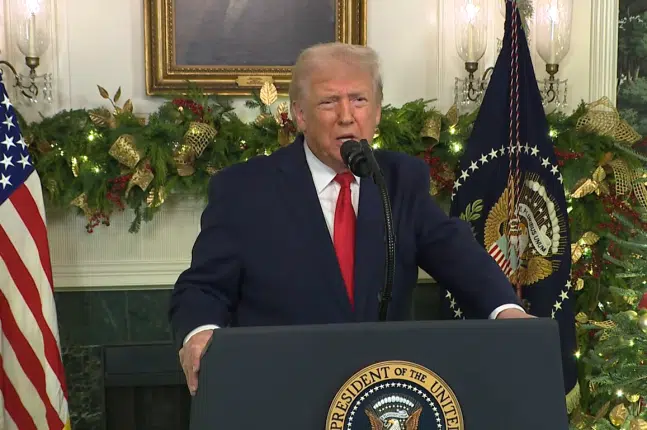By Rick Manning
Many Americans look at what is happening in Washington, D.C. and ask two simple questions, “Is our system broken, and why can’t these politicians just get along?”
In fact, these are two of the most frequent questions I get when doing radio interviews across the nation, particularly during the call-in portion.
As tough as it is to believe, the system is not actually broken when the Congress is fighting with itself and with the President, in fact, that is exactly the outcome our founding fathers intended when they built it.
There is supposed to be tension between the House and the Senate, and there is definitely supposed to be fighting between Congress and the Executive Branch.
The House of Representatives was given the constitutional responsibility of being where all spending bills must originate. The Founders wanted the body closest to the people, who faced election every two years, to hold the purse strings of government. The same House was proportionally elected whereby each Member represented approximately the same number of people, with every state guaranteed at least one House Member.
Until 1913, Senators were appointed by their respective state legislatures, two to a state in staggered six-year terms. This insulation from the voters was designed to create the ultimate insiders club, to serve as an offset to the constant political demands in the House.
The Senate was also set up to defend parochial state interests as individual senators’ power was directly tied to the desires of the politicians in their home states. Additionally, one of the great constitutional compromises was to protect the small states’ interests from being overrun by the large ones by offsetting the proportional representation in the House by giving each state equal representation in the Senate.
Just as the House has primary responsibility on money and tax issues, the Senate has sole responsibility in serving as a check on the Executive Branch through the ratification of treaties and the confirmation of political appointments among other powers.
American history is replete with examples of massive, almost heroic long-time congressional battles that somehow lose their passion in the stale retelling in school books.
Tensions leading up to the American Civil War were so high, that in 1856, a member of the South Carolina delegation to the House of Representatives physically beat a Massachusetts senator rendering him unconscious in the wake of a particularly blistering speech attacking aspects of the Kansas-Nebraska Act of 1854.
A few years earlier, House Speaker Henry Clay gained the moniker, the Great Compromiser, due to his fashioning of a congressional deal between diametrically opposed members of Congress that brought America back from the brink of the inevitable war that was fought out a decade later in places like Gettysburg, Chancellorsville and Vicksburg.
Over the course of time, Congress has been divided over issues like whether the paper currency created to fund the Civil War should be maintained or if the country should return to strictly using gold and silver for its money, how to reintegrate the southern states into the union after the war, whether to enter what is now known as World War I, and many others.
Since the 1970s, there have been seventeen other government shutdowns due to disputes that caused parts of the government to not be funded on time. And some of these were over what, looking back, were petty issues.
There are those who speak about the good ole days when President Reagan and House Speaker Tip O’Neil had such a good relationship back in the 1980s. They forget that Tip O’Neil shut down the government on twelve different occasions using the power of the purse. O’Neil even went so far as to shut it down because he did not like that the Fairness Doctrine had been allowed to expire.
In fact, the abnormality of the past forty years is that the government has not faced a shutdown since 1995.
Our nation’s history is shaped by the great battles that have taken place not just by soldiers on foreign and domestic fields, but in the halls of Congress. The very soul of our nation’s future is determined through these arguments, which oftentimes get ugly. They are not for the faint of heart, but they are worth fighting.
Finding a solution when both sides know that the decision creates a tipping point from which there is no return is not possible until one side determines that the battle is no longer worth waging — telling itself that they will return to it again one day, a day that never comes.
Democrats view Obamacare as the culmination of a fifty year fight to have government take over the nation’s health care system. A fight that has incrementally changed the way Americans receive health care with a quantum shift — pushed over the edge without the aid of a single Republican vote.
Republicans view Obamacare as the final destruction of the private health care system that will inevitably lead to socialized medicine. A system that is intended to drive doctors out of private practice and into big corporate health entities, where government decides who gets what health care and at what cost, and ultimately the people suffer due to doctor shortages and substandard service.
But at its core, Republicans in Congress believe that government has no business being in the health care business and Democrats desperately want government to control and run it.
Those irreconcilable differences should lead to great debates, shutdowns and a real national discussion over the direction our nation is taking.
Is our national system of government broken? No, it is working exactly as it should.
Rick Manning (@rmanning957) is the vice president of public policy and communications for Americans for Limited Government.






